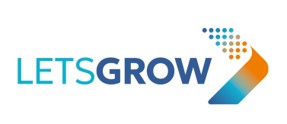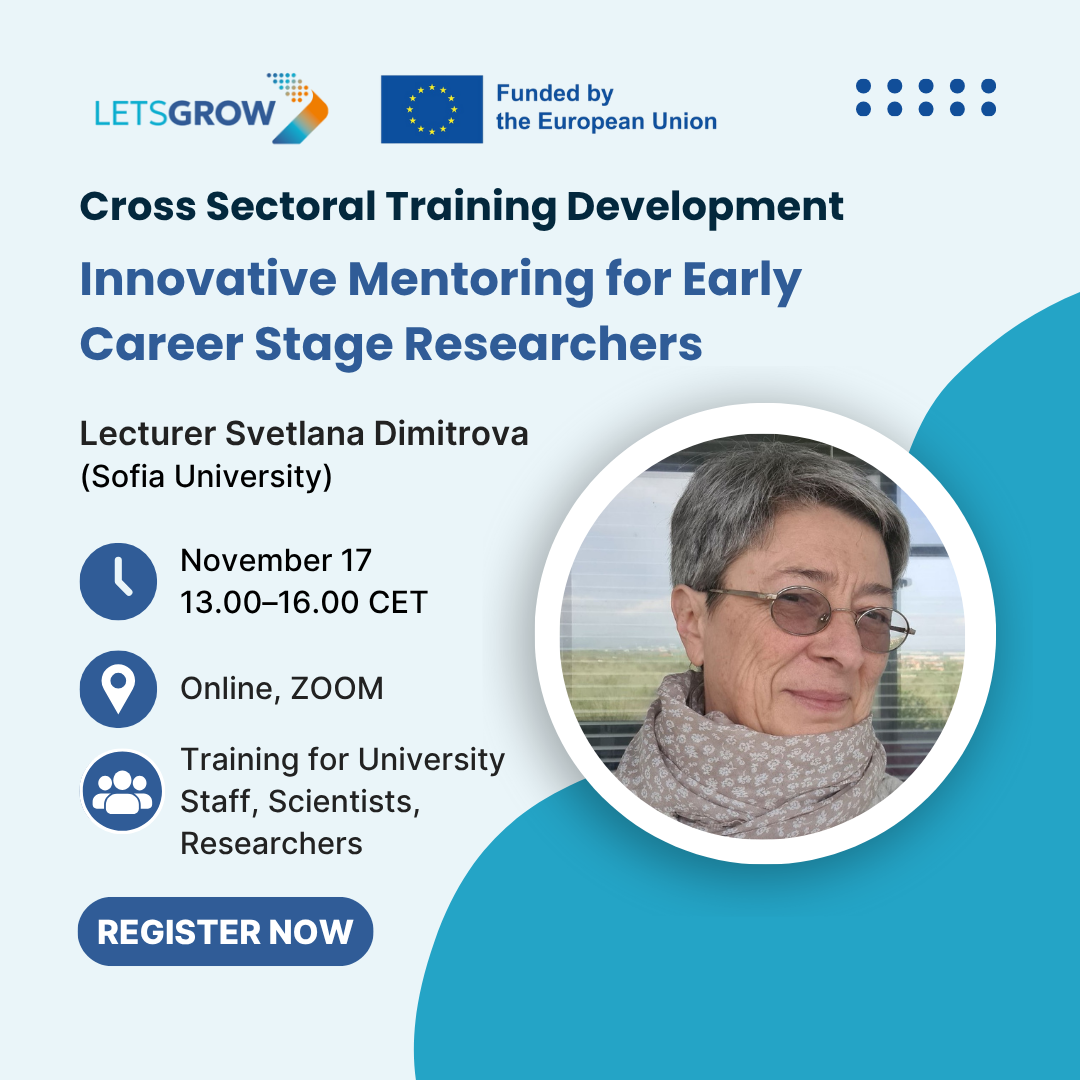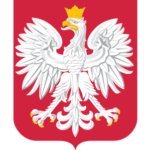| Event date | 17.11.2025 r. – „Innovative Mentoring for Early Career Stage Researchers” |
| Form of training, place | online, platform ZOOM |
| Duration of the event | 1:00 p.m. – 4:00 p.m. CET |
| Participants | university staff, academic staff, |
| Thematic category | training |
| Registration | until 14.11.2025 r. |
Academic and non-academic staff, as well as scientists and researchers, are invited to participate in the LETSGROW cross-sectoral training this November. These training courses will foster various skills and cover topics such as „Design Thinking” and „Innovative Mentoring for Early Career Stage Researchers”, which may be useful for academic and non-academic staff members. Participants will be awarded certificates recognized alliance-wide. The training sessions will be conducted in English, either in person or online. The programme times are Central European Time (CET). You can convert the times for your location here.
Take advantage of this opportunity to further develop your competencies by registering for the training. A list of available training in November and the registration forms can be found below.
Training Programme:
„Innovative Mentoring for Early Career Stage Researchers”. Lecturer Svetlana Dimitrova, Sofia University.
November 17, 13.00–16.00 CET, „Zoom”.
Registration is open until November 14.
Design thinking is a human-centered approach to problem-solving, especially toward so called „wicked problems”. It emphasizes empathy, creativity, and experimentation. It involves understanding users’ needs, redefining challenges, generating diverse ideas, prototyping solutions, and testing them iteratively. It is useful for university lecturers, researchers and administrative staff in that way that it can inspire innovative teaching methods and engaging learning experiences.
The main aim of this training is to introduce to ECS researchers the EURAXESS network instruments and career development support and to train them how use and benefit from them. The course will address the needs of ECS researchers by helping them enlarge their scientific networks, discuss their ideas and research with experienced international colleagues and interdisciplinary specialists, explore different research systems, and collaborate with international teams. The course will include practical exercises and follow up support using EURAXESS tools and career development support.








